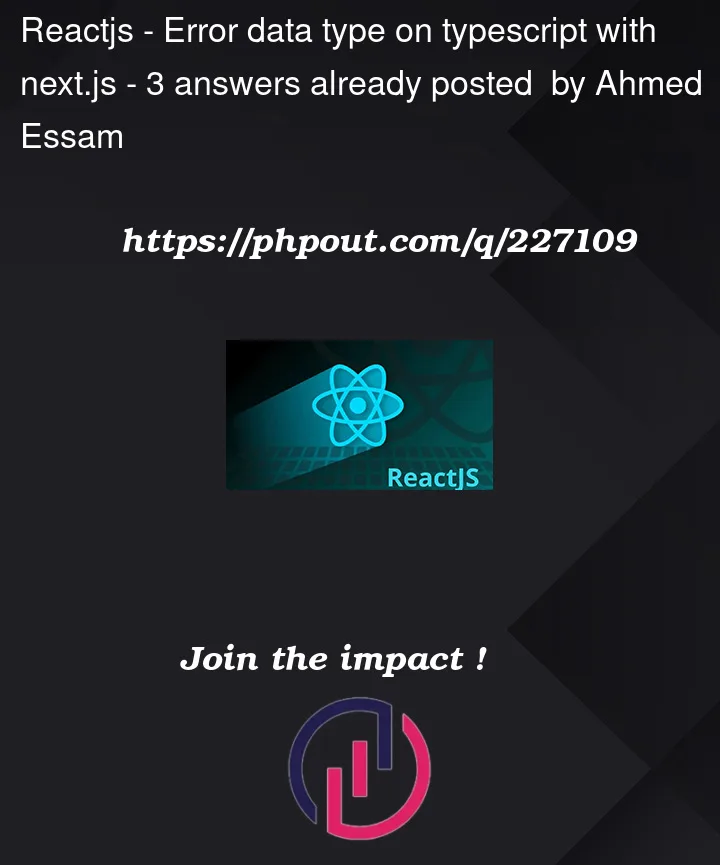I have a problem knowing the data type of the URL that I WILL res API from it, and I am using a custom hook to make it usable I am using Next.js with typescript
this is a useFetch.js (custom hook)
"use client"
import { useState } from "react";
type FetchParams = {
url: any
}
async function getData(url: FetchParams) {
try {
const res = await fetch(url.toString())
return res.json()
} catch(error) {
console.log("error", error);
}
}
export default async function useFetch(url: FetchParams) {
const [data, setData] = useState("")
setData(await getData(url))
return { data };
}
This is a pray components
import useFetch from '@/Hooks/useFetch';
import { useState, useEffect } from 'react';
export default function Pray() {
// Date methods
let date = new Date();
let month = date.getMonth() + 1;
let year = date.getFullYear();
// day equal date - 1
let day = date.getDate()-1;
const [country, setCountry] = useState('eg')
const [city, setCity] = useState('cairo')
const [data, setData] = useState("")
useEffect(() => {
const { data }: any = useFetch(`https://api.aladhan.com/v1/calendarByCity?city=${city}&country=${country}&method=5&month=${month}&year=${year}`)
console.log(data)
}, [data])
return()
}
error is:
Argument of type ‘string’ is not assignable to parameter of type
‘FetchParams’.ts(2345)
const { data }: any = useFetch(`https://api.aladhan.com/v1/calendarByCity?city=${city}&country=${country}&method=5&month=${month}&year=${year}`)




3
Answers
To fix this, you need to pass an
objectinstead of astringto theuseFetchas a parameter:You have declared
useFetchto consume aFetchParamstype argument, not a string type argument.Update
useFetchto consume a URL string type value. Don’t forget to use auseEffecthook to issue the side-effect of making the fetch and updating thedatastate.Alternatively you could pass an object:
The
useFetchhook can’t be called from within theuseEffecthook’s callback function. It must be called as the top-level of the component or other custom React hooks. Remove thedatastate and simply reference theuseFetchhook’s returned value.The error you are getting is because you have assigned the interface to your object and then you are directly passing it value to it. Your url object is something like this:
So you need to change your way of declaring the object or pass your object as a child object:
Declare the url object the correct way
Or send url in an object
Also I think your useFetch function is unnecessary here, you can just directly call your getData function.